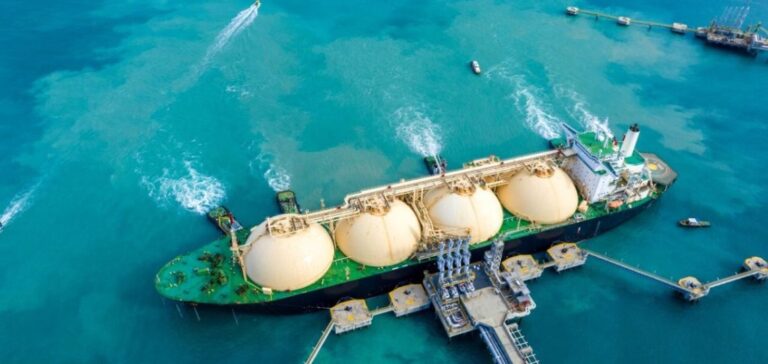India, the world’s fourth-largest importer of liquefied natural gas (LNG), is intensifying efforts to strengthen its supply portfolio. Several energy sector companies, including GAIL (India) Ltd, Indian Oil Corporation (IOC), and Bharat Petroleum Corporation Ltd (BPCL), are engaged in negotiations with U.S. suppliers to secure additional LNG volumes. These discussions are taking place against the backdrop of evolving energy policies, marked by the recent removal of U.S. restrictions on export permits for new projects.
India’s Gas Diversification Strategy
India aims to increase the share of natural gas in its energy mix from the current 6.2% to 15% by 2030. The government believes that boosting LNG imports is essential to meet growing demand and ensure supply diversification. GAIL, a key gas distributor in the country, already imports 5.8 million tons per year from the United States under long-term agreements with the Cove Point terminal (Berkshire Hathaway Energy) and Sabine Pass (Cheniere Energy).
Negotiations for Long-Term Agreements
Indian companies are currently evaluating the possibility of increasing their U.S. LNG volumes through long-term contracts or stakes in liquefaction facilities in the United States. This strategy would help secure supplies at prices indexed to the Henry Hub, complementing existing volumes contracted with Qatar, which are tied to crude oil prices.
A Favorable Diplomatic Context
India’s LNG discussions coincide with Prime Minister Narendra Modi’s visit to Washington, where he is scheduled to meet U.S. President Donald Trump. Energy supplies, particularly LNG, are expected to be among the key topics of discussion. This trend is part of a broader movement in Asia, where other countries like Japan and Taiwan are also seeking to diversify their gas imports.
Rebalancing Import Sources
India considers a diversified supply portfolio, incorporating prices indexed to both crude oil and U.S. gas, as crucial to mitigating price volatility risks. With shifting U.S. export policies, ongoing discussions between Indian companies and U.S. LNG suppliers could play a key role in the future distribution of energy flows in Asia.






















